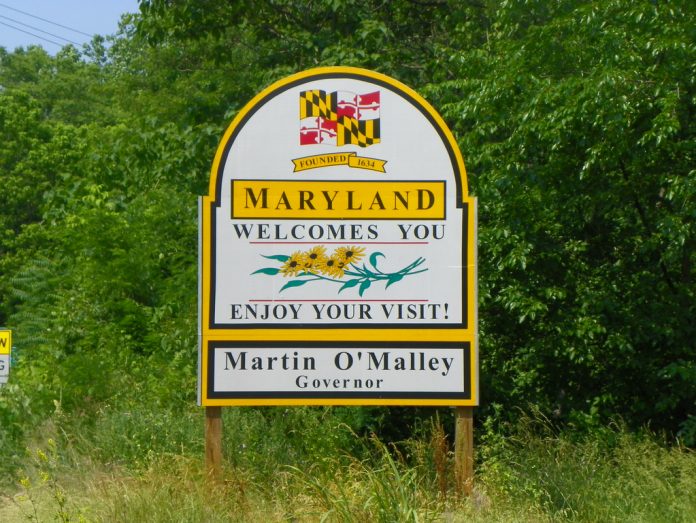
Maryland’s gambling scene has changed profoundly over recent years, from sports betting to expanded casino access, as state lawmakers respond to changing public attitudes and economic goals. These developments impact how residents place bets and affect local economies, businesses, and community funding across Maryland.
Gambling Development in Maryland
Gambling in Maryland has changed significantly from strictly controlled environments to more open ones, including casinos, sports betting platforms, and online platforms. In 2008, Maryland approved a referendum allowing slot machines in select locations; later that same year, table games and additional casinos were legalized, providing wider gambling access.
Recent changes for Maryland included legalizing sports betting after a voter referendum held in 2021, which was then implemented through laws passed by both houses of the legislature to regulate in-person and online wagers. Finally, starting in late 2022, Maryland launched mobile sports betting, enabling residents to place bets from their phones or computers. This was intended to keep Maryland competitive against neighboring states while channeling revenue toward education and public services.
Economic Benefits and Revenue Streams
Legal gambling has quickly become one of Maryland’s key revenue generators. Casinos and sportsbooks operate across the state, contributing hundreds of millions annually in gambling-related taxes to public funding, particularly the Education Trust Fund that finances public schools.
Apart from tax revenue, gambling generates thousands of jobs in areas like hospitality, security, customer service, and tech support. This employment boost can be particularly crucial in regions that rely heavily on tourism or have limited job opportunities. Local businesses also stand to gain from casinos’ presence – visitors often visit nearby restaurants, hotels, and shops before visiting casinos.
Sports Betting Can Change the Lives of Residents
Thanks to recent regulatory updates in Maryland, Maryland residents can legally place bets on professional and college sports. Sportsbooks have opened in existing casinos, while mobile apps make betting even easier—this development has transformed how fans engage with games and teams.
The Maryland Lottery and Gaming Control Agency oversees licensing, compliance, and responsible gambling measures to protect consumers and ensure fair play. To place wagers online, bettors must be at least 21 years old and located within state lines. Strict identity verification processes and geolocation checks are in place to comply with legal regulations and safeguard the integrity of betting services online.
Mobile Betting Versus Retail Betting: What Are My Options?
Maryland provides retail (in-person) and mobile (online) betting to give residents more options when participating. Retail sportsbooks within casinos offer a social atmosphere with large screens, food service, and staff assistance – ideal for group events such as Super Bowl Sunday! Mobile (online) betting allows residents more freedom of participation.
Mobile betting provides users with easy and accessible betting from any location in the state. Users can download licensed apps, create accounts, and place bets within minutes – often, these platforms also include features such as:
- Live in-game betting odds comparison and bonus or promotion offers
- Secure payment methods (deposit limits, self-exclusion policies, etc.)
- Responsible gambling tools (deposit limits, self-exclusion, etc)
Each option provides something unique, yet they have significantly expanded Maryland’s gambling market.
Regulatory Challenges and Consumer Protections
Maryland regulators recognize the necessity of robust oversight as part of expanding access. Their focus has been to strike a balance between revenue growth and player safety by mandating rigorous vetting processes for operators and strict reporting standards—any violator can have their gaming license revoked.
The legislation for online gambling in Maryland ensures consumers are well protected, mandating that betting platforms provide self-exclusion tools, problem gambling resources, and clear terms of service. Maryland also funds programs intended to educate the public on gambling risks while offering help for those experiencing problems related to their betting activities.
Regulations have also been put in place to ensure transparency in how odds are calculated and presented, helping prevent deceptive practices while providing fair play for all participants.
Impact Evaluation and Funding Benefits for Social Projects
One of the key goals of legalizing and expanding gambling in Maryland was to fund community initiatives. A significant share of revenue is used for public education, with additional funds for small businesses, minority-owned enterprises, and local infrastructure projects.
Gambling funds have made an invaluable contribution to improving school buildings, teacher pay, and educational programs across the state. Grants and loans from gambling revenue have also supported downtown revitalization projects and workforce training initiatives in economically distressed areas.
Funds redistribution ensures that gambling profits benefit more than just casino owners or betting platforms; they’re reinvested into communities where they are most needed.
Influencing Voters through Public Opinion and Voter Outreach
Maryland’s gambling laws have been heavily shaped by voter input. Through public referendums and legislative feedback, Marylanders have had a direct say in what forms of gambling are legalized and regulated, giving residents direct control over how legal changes reflect public sentiment. This democratic approach has helped shape legal changes according to public sentiment.
Polls show that many Marylanders support legalized gambling when tied to public benefits like education funding. Yet, there remain legitimate concerns over addiction, youth exposure, and advertising of betting platforms – prompting lawmakers to adapt policies accordingly to reflect evolving public sentiment and social responsibility.
Conclusion
Maryland’s gambling landscape has evolved beyond casinos and lottery tickets in recent years, thanks to legal changes that have opened the door for sports betting, mobile wagering, and broader consumer access, all while reinforcing safety and economic growth. These developments are changing how people place bets and affecting state finances, community development initiatives, policy decisions, and future policy developments. Maryland continues its efforts to revise its gambling framework responsibly while keeping pace with an ever-evolving industry.




